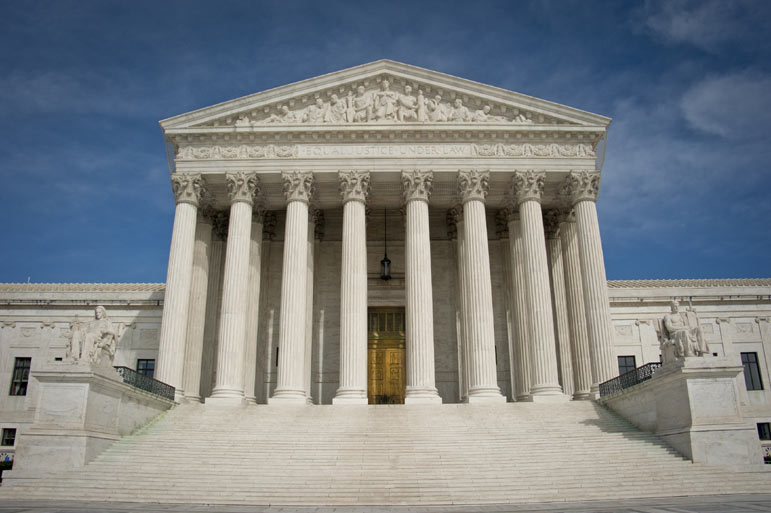
The political world will soon be consumed by President Donald Trump's choice to fill the nearly year-long vacancy on the Supreme Court. Incensed by the Republican-controlled Senate's refusal to even consider President Obama's nominee to fill the seat, U.S. Appeals Court Judge Merrick Garland, Democrats are promising a bruising confirmation fight.
But SCOTUS-watchers will be looking ahead to what the sitting justices will do, particularly Anthony M. Kennedy, Ruth Bader Ginsburg and Stephen G. Breyer. Why?
Because it won't be Trump's first Supreme Court pick who will seal the court's ideological direction for a generation. It will be, if and when it happens, his second.
Almost anyone on Trump's list of 21 candidates to take Antonin Scalia's spot on the court is likely to replicate the late justice's voting pattern (if not his style). That would restore the court's long-held position as a generally conservative court capable of the occasional liberal surprise.
Those surprises are almost always supplied by Kennedy, 80, nominated to the court 29 years ago by a fellow Californian, Ronald Reagan.
Overall, Kennedy most often votes with the court's conservatives: He is further to the right on law-and-order issues than Scalia was, he is comfortable with the court's protective view of business, and he shared the losing view that the entire Affordable Care Act is unconstitutional.
But when the court moves left, it's because Kennedy joins its liberals, Ginsburg, 83, and Breyer, 78 - both nominated by Bill Clinton - along with the much younger Justices Elena Kagan and Sonia Sotomayor, appointed by Obama.
So whoever replaces Scalia will merely return the court to the status quo that existed before he died. The court's next appointment after that could mean a definitive shift.
The Supreme Court without Breyer, Ginsburg or Kennedy would be a different place, indeed. They have been part of the scant majority that forbade the death penalty for minors and the intellectually disabled, and established gay rights protections, including finding a constitutional right for same-sex couples to marry.
Just last term, they struck down a Texas law that they said used protecting women as a pretext for making abortion unavailable, and continued a limited endorsement of affirmative action.
All of those holdings would be threatened by a court with five consistent conservatives, the oldest being 68-year-old Justice Clarence Thomas.
A popular toast among liberals this holiday season was to Ginsburg's health. They might want to keep Kennedy and Breyer in their thoughts and prayers as well.
Previously:
• 11/01/16 Supreme Court hears arguments in cases centering on cheerleading outfits and a goldendoodle service dog
• 10/13/16 Supreme Court hears case on biased comments in jury room
• 10/03/16 Court at a crossroad at start of new term
• 08/22/16 Don't bet on Ruth Ginsburg retiring if Clinton becomes president
• 07/15/16 Following backlash, Ginsburg expresses 'regret' for remarks criticizing Trump
• 02/15/16 he key cases facing the Supreme Court after Justice Scalia's death


 Contact The Editor
Contact The Editor
 Articles By This Author
Articles By This Author